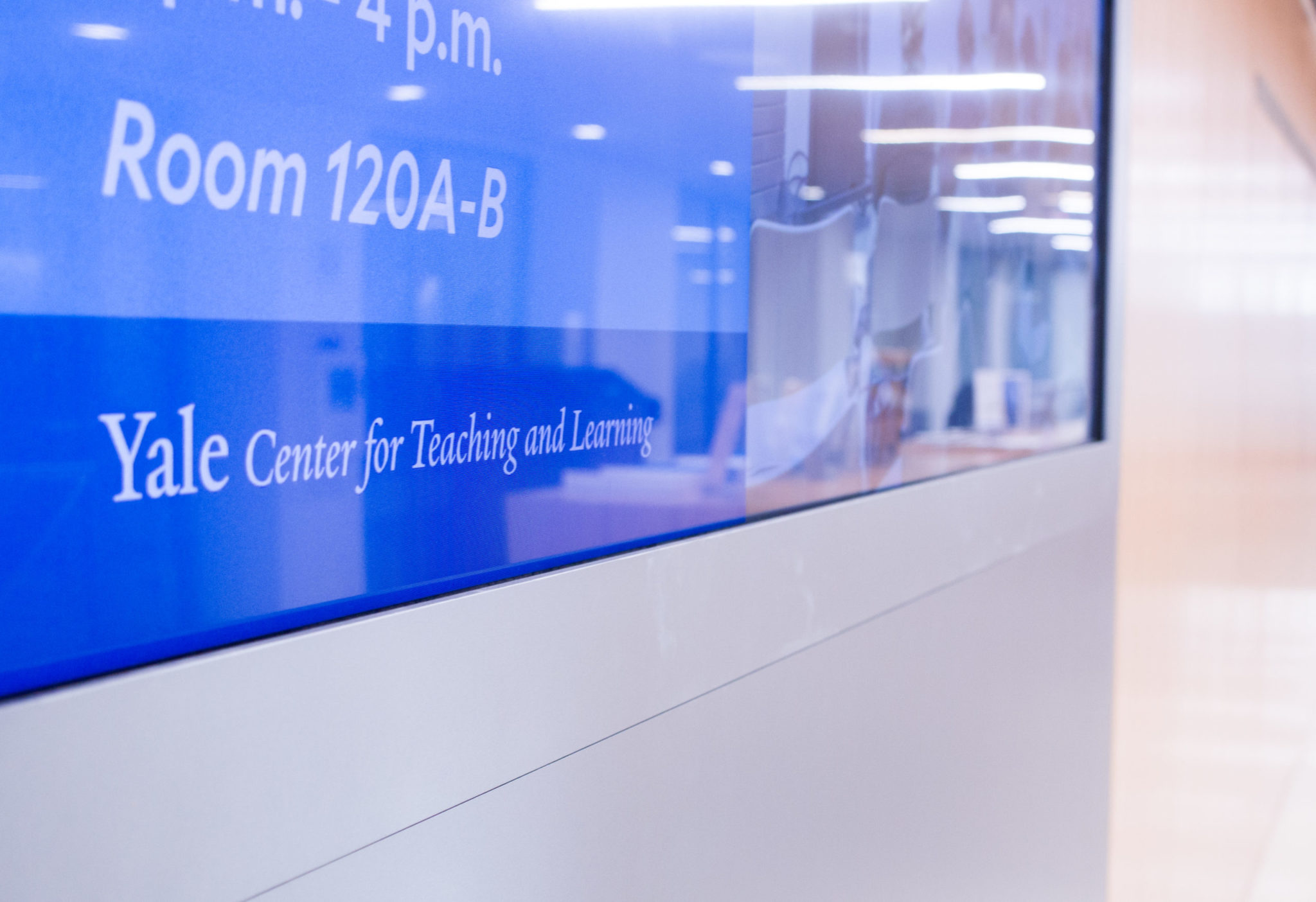
Surbhi Bharadwaj, Staff Photographer
In light of the pandemic, the Yale Poorvu Center for Teaching and Learning is offering virtual writing assistance by appointment as a substitute for Writing Partners’ normal drop-in hours.
The Writing Partners’ program is one of the Center’s many academic resources designed to help undergraduates improve their writing skills. The Writing Partners themselves are undergraduate and graduate school students who are selected via a competitive application process and trained by program leaders and English professors Alfred Guy Jr. and Ryan Wepler. Writing Partners help students with personal essays and academic papers and are chosen for both their writing skills and ability to talk about the writing process.
This year, students and Writing Partners have adapted to a Zoom-based appointment format. The program also pioneered a system of course-based Writing Partners and emphasized Writing Partner support for international students.
“It’s been of great help to me,” said Rose Bae ’24. “Especially as a first year and an international student, I appreciated the accessibility and convenience of the writing support that I got.”
Before the pandemic, the Writing Partners held their in-person drop-in hours in the CTL in Sterling Library. This semester, students need to schedule their Zoom visits using an online sign-up spreadsheet.
One writing partner, Maddie Bender ’20 SPH ’21, noted that there are benefits to the virtual format. For example, the signup system allows her to know in advance how many people are planning to attend her shifts, something she did not know when working at the physical center, Bender said.
According to Bender, many students have taken advantage of the remote writing assistance. Bender told the News that all of her shifts this semester, which are scheduled for Tuesdays from 7 p.m. to 10 p.m., have been fully booked — “to [her] surprise.”
Another benefit of remote operation is that undergraduates no longer need to leave their room to get writing advice. Students living on and off campus, as well as those who are enrolled from home, all have access to the Center’s services.
For the first time this year, the Poorvu Center has also paired Writing Partners with 50 specific WR-credit courses. According to Guy, the R.W.B. Lewis Director of Writing & Tutoring at the CTL, more students have signed up for these course-based appointments than for the usual tutoring services.
Working with multiple students on the same assignment allows course-based Writing Partners to become familiar with common writing challenges associated with a specific class, but the Writing Partners themselves do not need to attend the class or study the curriculum to be matched with a course. Students can email the Writing Center or sign up on Calendly to make an appointment for course-based writing help.
Writing Center administrators also specifically encouraged international students to utilize the services provided by the Writing Partners.
In an email to international students, Associate Director of Writing and Tutoring Ryan Wepler wrote that the Writing Center’s program “allowed [international students] to schedule up to ten appointments with a [specific] writing tutor throughout the fall semester.”
After filling out a short sign-up form, where students answer questions about previous writing experience and current courses, international students will then be matched with a specific Writing Partner. These Writing Partners will work with their matched student throughout the semester. The matches also allow international students to meet with their Writing Partners outside of their designated office hours.
According to Wepler, working through the whole semester with the same Writing Partner — who is selected to be “best suited to help [the student] with their writing goals,” — presents an option for a more long-term accumulative writing tutoring.
Bae told the News that after two 45-minute sessions, her Writing Partner already knew the context of her seminar’s requirements and the specifics of her essay, so she felt relieved that she didn’t have to “waste time and explain that all again to someone else.”
Non-international students are still able to sign up for writing assistance appointments, but will not be matched with the same Writing Partner throughout the semester.
The transition to remote operation also brings challenges. For example, because there are a limited number of sign-up spots available, students seeking last minute help without making a reservation may have difficulty getting the help they need.
“When we were doing in-person tutoring, you could literally just walk into the CTL and someone would help you regardless of whether it was a busy night or not,” Bender said.
Additionally, the Writing Partners and their mentees have to adjust to various technological issues and the usual inconveniences of online communications.
According to Bender, the trickiest problem has been finding common ground with a stranger over Zoom and having students being willing to share something as personal as one’s writing with the Writing Partners.
As for the spring semester, the Poorvu Center plans to operate its tutoring programs in the same way it does currently.
“We have hit the balance between steady business (which indicates that students are getting the help they need) and some open space in the schedule (which means that students are probably not getting shut out),” Guy wrote in an email to the News. “Since the larger Yale College plan is for similar logistics this Spring, we plan to have tutoring work the same way, too.”
Aside from the Writing Partners program, the Poorvu Center also offers writing help from the Residential College Writing Tutors, who also operate via Zoom and email this fall.
Tania Tsunik | tania.tsunik@yale.edu







